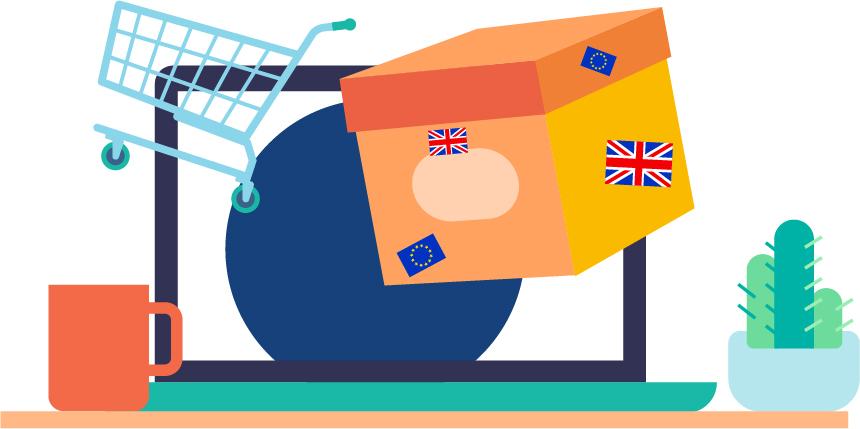The EU-UK Trade and Cooperation Agreement
On 24 December 2020, the EU and the UK reached an agreement on the terms of their relationship following the UK’s withdrawal from the EU. The EU-UK Trade and Cooperation Agreement (TCA) provisionally entered into force on 1 May 2021 and provides for zero tariffs and zero quotas on all trade of EU and UK goods that comply with the appropriate rules of origin.
Guidance on the application of the TCA: customs formalities and rules of origin
UK import formalities applicable as of 1 January 2022
Withdrawal Agreement
For the purposes of customs, the UK is now treated as any other non-EU country. In particular, customs procedures and formalities apply to trade between the UK and the EU.
However, in accordance with the agreed Protocol on Ireland and Northern Ireland, EU customs rules and procedures generally continue to apply to goods entering and leaving Northern Ireland.
The UK’s withdrawal from the EU affects your company if:
- it sells goods or supplies services to the UK
- it buys goods or receives services from the UK
- it moves goods through the UK
- it uses UK materials and goods to trade under preferential schemes with EU partner countries.
Frequently asked questions at the end of the transition period
In the area of tax and customs, this means, for example:
- You need to file customs declarations when importing or exporting any goods to/from Great Britain (the UK excluding Northern Ireland) or when moving your goods through Great Britain.
- You may need to provide security and safety data, in addition to the customs declaration.
- You need a special licence to import or export certain goods (e.g. waste, certain hazardous chemicals, GMOs). You need to comply with additional formalities if importing or exporting excise goods (alcohol, tobacco, or fuel) to/from Great Britain.
- You will have to comply with different VAT rules and procedures for transactions with Great Britain than for transactions within the EU and with Northern Ireland.
To assist businesses, the Commission has published detailed guidelines on a wide range of specific topics. In the area of tax and customs, the relevant guidelines can be found below:
- Excise duties
- Value added tax (VAT) – goods
- Value added tax (VAT) – services
- Customs including preferential origin
- Use of GB and XI geonomenclature codes
The full list of readiness notices is available here.
Consequences of Brexit | European Commission
Online shopping from the UK
The same charges that apply to goods bought online from non-EU retailers now apply to online shopping from the UK. To avoid unwelcome surprises when you order online from the UK, always read the sales terms and conditions and the delivery information carefully. All websites that sell goods into the EU are obliged to inform consumers about the total price of goods and services, inclusive of taxes and any other charges.If they cannot be calculated in advance, the consumer must be informed that additional charges may be payable. Ask assistance from the website to estimate how much more money you will have to pay.
See our factsheet for more information on the charges you may have to pay when online shopping from UK websites.

National contacts
To find the national contact points in your country, please visit the contact-list.
